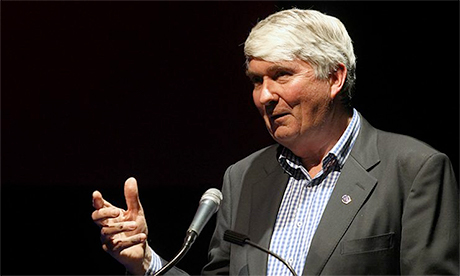The Australian royal commission is over, but there is still a long way for us to travel so that we might stand together in solidarity committed to justice, truth and healing for all, for the living and for the dead.
We are unlikely as a Church or as a society to get this right for quite some years to come.
Unlike the apology to the stolen generations or the apology for forced adoptions, this apology will be delivered in the hope that those from institutions which have done wrong stay away or at least not be publicly identifiable.
The government website states:
‘The national apology is a day for survivors, families and supporters.
“Community consultations have made it clear that representatives from institutions in official attire risk traumatising survivors.
“Accordingly, institutions will not be represented at the national apology in Canberra.
“Members of institutions who wish to attend apology events in their personal capacity as a survivor, or as a support person to a survivor, are respectfully asked to not wear a uniform or any clothing that identifies their institution.”
So let’s continue to feel shame as members of the Church and let’s recommit to justice, truth and healing.
As we look at our church structures and the past cover ups or downplaying of abuse that occurred, let’s take to heart Jesus’ words in today’s gospel (Mark chapter 10 verses 35-45):
‘You know that those who are recognised as rulers over the Gentiles lord it over them, and their great ones make their authority over them felt.
But it shall not be so among you.
Rather, whoever wishes to be great among you will be your servant; whoever wishes to be first among you will be the slave of all.’
We are fortunate that our bishops finally agreed to release the reports of our Truth Justice and Healing Council.
One of those reports contained personal testimonies by members of the Council.
This evening, I would like to quote from just four of those testimonies. I will not quote any bishop. I will not quote any man. Let me just quote from four of the women on the council.
Maria Harries, who is a professor of social work and the chair of my board at Catholic Social Services Australia, said:
‘I still need to be convinced that the structures of the church implicated in their permitting of such abuse and the protection of perpetrators will really reform itself. Change is obligatory, and it is differentially confronting and frightening for various elements of our church. The recognition of the problems we face as a church is a good start to finding solutions.’
Marian Sullivan, a child psychiatrist, said:
‘The royal commission has challenged many parts of Australian society and its institutions.
“The Catholic Church has been scrutinised extensively and critiqued harshly.
“As a member of the Council I have moved from a disposition of disappointment with the Church to one of satisfaction that the Church represented by the Council has unflinchingly faced the shame of its past behaviour and any inadequacies of redress.
“Although not widely acknowledged, the cooperation that the Council gave to the royal commission has been exemplary and is proof of our resolve.’
Maree Marsh, a Brigidine Sister and psychologist, said:
‘The church cannot undo all of the harm done in the past, but it has the responsibility to do all that is within its power to create an environment in which people will treat other people with respect, dignity and justice.
“The healing that is necessary involves a long process and will take courage, compassion, openness and patience.
“Above all it will take faith — faith in one another and faith that God is with us in this journey.’
This evening whether victim, relative, bystander, or church official we can all identify with the suffering servant in Isaiah (Isaiah chapter 53 verses10-11):
The Lord was pleased to crush him in infirmity.
If he gives his life as an offering for sin, he shall see his descendants in a long life, and the will of the Lord shall be accomplished through him.
‘Because of his affliction he shall see the light in fullness of days; through his suffering, my servant shall justify many, and their guilt he shall bear.’
May the Lord have mercy on us all.
May the day come when church officials and victims will be comfortable in each other’s presence in our Parliament even if not in our Church.
But let’s dare to pray that all might belong both in the galleries of our Parliament and in the pews of our Church seeing the light in fullness of days.
- Fr Frank Brennan SJ is the CEO of Catholic Social Services Australia. A former professor of law at Australian Catholic University and Adjunct Professor at the Australian Centre for Christianity and Culture the above text is taken from is his homily for the 29th Sunday in Ordinary Time, Holy Trinity Catholic Church, Curtin.
- Originally published in Eureka Street. Republished with permission of author.
